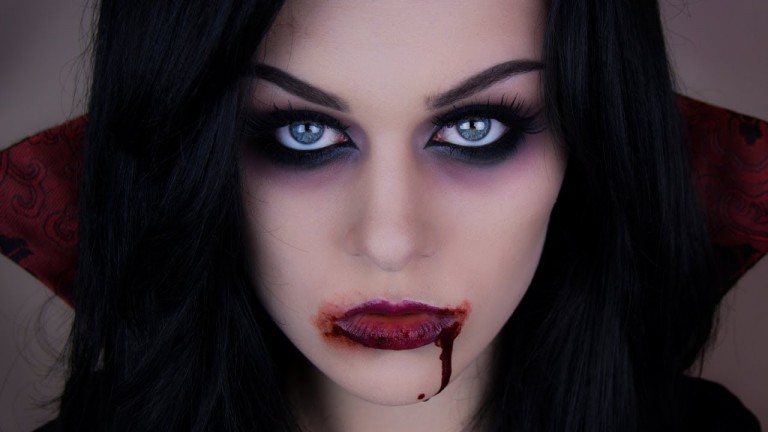PHOTO: U.S. Sen. Charles Schumer is warning parents to pay close attention to the Halloween makeup they purchase this year, as it may pose a serious health risk to children. Photo Courtesy of YouTube/Emma Pickles
Halloween makeup and face paint, often made in China, can contain heavy metals like lead, nickel, cobalt and chromium which could pose a serious danger to the children wearing it, U.S. Sen. Charles Schumer (D-N.Y.) warned last Sunday.
And the hazardous chemicals are left off the makeup packaging, leaving parents in the dark, Schumer added.
According to a report conducted by the Campaign for Safe Cosmetics, 10 out of 10 face paints tested for heavy metals contained lead, and six out of the 10 face paints tested contained nickel, cobalt and/or chromium. The 10 products contained lead, ranging from .054 parts per million to .65 ppm; four of the products contained nickel, ranging from 2.1 to 5.9 ppm; two of the products contained cobalt, ranging from 4.8 to 5.5 ppm; and five of the products contained chromium, ranging from 1.6 to 120 ppm. In addition, the Campaign for Safe Cosmetics has found that 66 percent of the top brands of lipstick sold in the United States contain lead. Most often, these products are made in China, Schumer said.
“Every Halloween we worry about the candy we’re putting in our kids’ mouths, but nowadays, we need to worry about the face paint we’re putting on our kids’ faces,” Schumer said. “Toxic Chinese chemicals in children’s Halloween makeup and face paint is a scary thought, and yet, often times, parents don’t even know what’s in these products. When it comes to the kind of makeup our kids slather on at Halloween, lead, nickel and cobalt do not belong, and so, I am urging the Food and Drug Administration to unmask the ingredients that are often left off of the packaging.”
Indeed Schumer has sent a letter to Acting FDA Commissioner Stephen Ostroff, M.D., calling on the agency to investigate the products to determine what’s being hidden and what’s not. The senator said he hopes the push spurs both regulation and greater enforcement in the area of children’s novelty cosmetics, like makeup and face paints.
Asked for comment, FDA spokeswoman Lauren Sucher said, “The FDA regulates cosmetics under a law passed by Congress: the Federal Food, Drug, and Cosmetic Act. This law does not require cosmetic products or ingredients to have FDA approval before they go on the market. The only exception is for the color additives used in cosmetics. The law treats color additives differently from other cosmetic ingredients. Except for coloring materials used in coal-tar hair dyes, color additives need FDA approval for their intended use before they may be used in cosmetics, including color additives in face paints and other cosmetics that may be used around Halloween time.
“If a cosmetic contains an ingredient or contaminant that would make the product harmful to consumers when they use it according to the labeling or in the customary or expected way,” Sucher continued, “that product is considered ‘adulterated’ under the law. Misuse of color additives also makes a cosmetic adulterated. It’s against the law to market an adulterated cosmetic. The FDA can take action when we find out about a cosmetic with a safety problem, and urges consumers to report problems to us in a number of ways.”
With Halloween makeup, Sucher said the FDA advises that consumers:
- Follow all directions carefully.
- Don’t decorate your face with things that aren’t intended for your skin.
- If your face paint has a very bad smell, this could be a sign that it is contaminated. Throw it away and use another one.
- Like soap, some things are OK on your skin, but not in your eyes. Some face paint or other makeup may say on the label that it is not for use near the eyes. Believe this, even if the label has a picture of people wearing it near their eyes. Be careful to keep makeup from getting into your eyes.
- Even products intended for use near your eyes can sometimes irritate your skin if you use too much.
- If you’re decorating your skin with something you’ve never used before, you might try a dab of it on your arm for a couple of days to check for an allergic reaction BEFORE you put it on your face. This is an especially smart thing to do if you tend to have allergies.
By Michael V. Cusenza
michael@theforumnewsgroup.com

